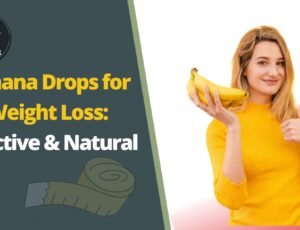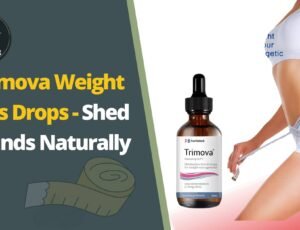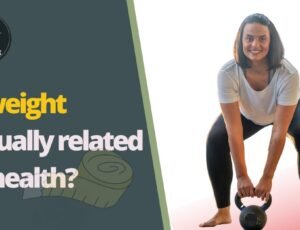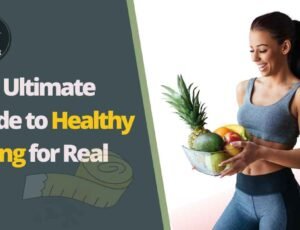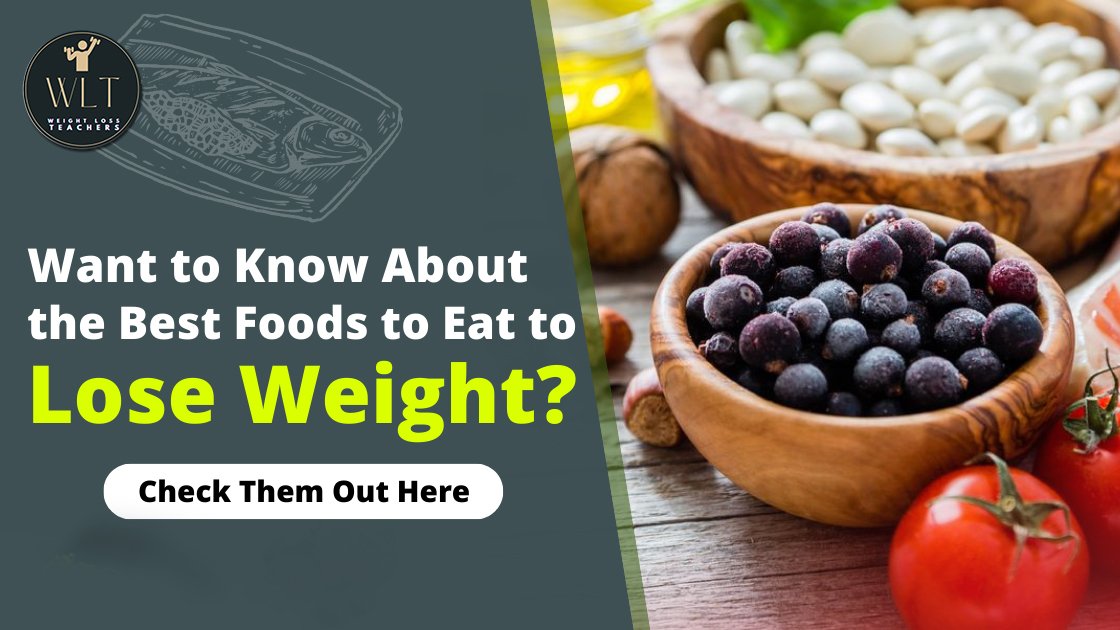
Want to Know About the Best Foods to Eat to Lose Weight? Check Them Out Here
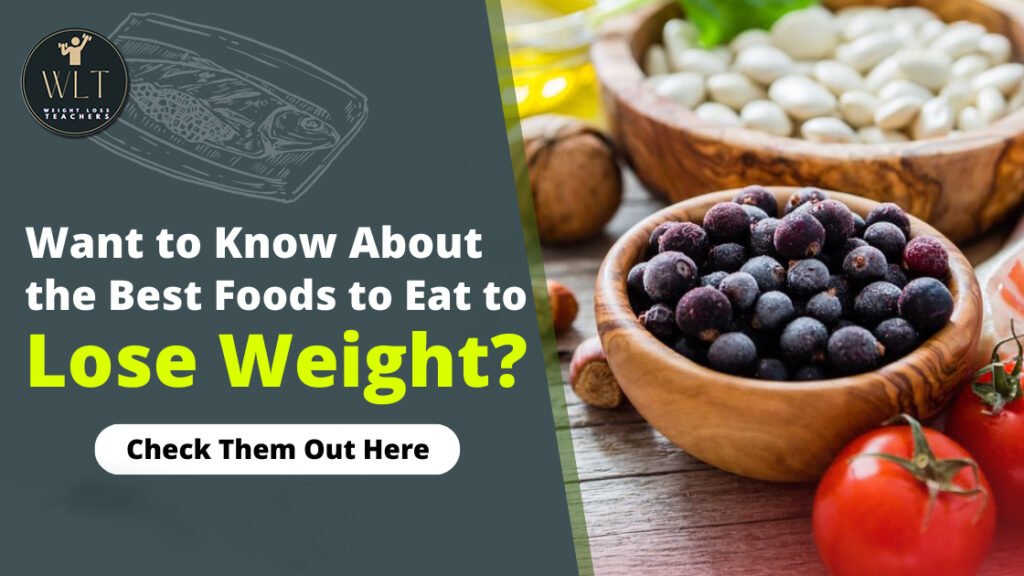
Many people want to lose weight, but it can be an intimidating and difficult goal to attain. However, you can make the weight loss process more manageable and successful by focusing on certain weight loss foods and making healthy choices.
Table of Contents
Introduction
In this article, we will look at a selection of weight loss foods that have been proven to help with weight management. High protein foods, fiber rich foods, healthy fats, and whole, unprocessed foods are examples of such foods. We will also analyze the significance of drinking water, avoiding sugary and processed meals, and eating in moderation.
Along with the best foods to eat to lose weight, it’s also important to remember that other lifestyle aspects like exercise, sleep, and stress management have a crucial role in your weight loss journey. As a result, before making any big changes to your diet or exercise routine, you should consult a healthcare expert.

Prominent Weight Loss Foods
Here are some healthy food ideas for weight loss:
Increase Your Consumption of High Protein Foods
Protein is an essential ingredient that is essential for weight loss. It not only makes you feel fuller after meals, but it also helps you avoid overeating. Furthermore, including high-protein meals in your diet will enhance your metabolism, which can help you lose weight.
There are several high-protein weight-loss foods to choose from, including:

Lean Meats: Chicken, turkey, and fish are high in lean protein. They are low in fat and high in vital amino acids, which are required for muscle repair and growth.
Eggs: Eggs are a versatile and healthful protein source. These also include a lot of vitamins, minerals, and antioxidants. Consider using eggs in your breakfast or a variety of recipes.
Greek Yogurt: Due to its high protein content, Greek yogurt is a fantastic choice among the simple foods to lose weight. It is also high in calcium and probiotics, both of which promote digestive health.
Cottage Cheese: Cottage cheese is a low-calorie, high-protein snack that can be added to salads and other foods. It is also high in calcium and other vital minerals.
Nuts and Seeds: Protein-rich nuts and seeds include almonds, walnuts, chia seeds, and flaxseeds. They also contain healthy fats and fiber, which help with feelings of fullness.
Legumes: Plant-based protein sources that are also high in fiber include beans, lentils, and chickpeas. They can be used to flavor soups, stews, salads, and other foods.
You may enhance your metabolism and help your weight loss efforts by including these high-protein meals in your diet.
Include Fiber Rich Foods in Your Diet

Fiber is yet another important component for weight loss. It not only makes you feel full and pleased after meals, but it also aids in blood sugar regulation and prevents cravings for bad foods.
Consider the following fiber-rich weight-loss foods:
Fruits: Berries, apples, pears, and oranges are examples of fiber-rich, simple, and healthy meals for weight loss. They also include a lot of antioxidants, vitamins, and minerals. To reap the benefits of fruits, include a variety in your diet.
Vegetables: Broccoli, cauliflower, spinach, kale, and Brussels sprouts are just a few of the many vegetables high in fiber. They are also low in calories, making them perfect for losing weight.
Whole Grains: Fiber-rich whole grains include brown rice, quinoa, oats, and whole wheat. They provide lasting energy and can be used in a variety of dishes, including stir-fries, salads, and breakfast bowls.
Legumes: Beans, lentils, and chickpeas not only contain protein but also a lot of fiber. They are adaptable ingredients that may be used in a variety of cuisines, such as soups, stews, and dips.
Nuts and Seeds: In addition to being high in protein, nuts and seeds are high in fiber. Consume them as snacks or mix them into salads, yogurt, or smoothies.
Fiber-rich weight-loss foods can help you feel fuller for longer, manage your appetite, and promote good digestion.
Choose Healthy Fats

Contrary to popular opinion, not all fats are harmful to your health. Including healthy fats in your diet can help you lose weight. Healthy fats make you feel fuller after meals and can help you avoid cravings for bad foods.
Include the following healthy fats in your diet:
Avocado: This nutrient-dense food is high in monounsaturated fats. It can be used in salads, sandwiches, and even as a replacement for butter or mayonnaise in some recipes.
Nuts and Seeds: Almonds, walnuts, chia seeds, and flaxseeds are high in protein, fiber, and healthy fats. They are a nutritious and filling snack alternative.
Olive Oil: A cornerstone of the Mediterranean diet, olive oil is well-known for its health advantages. It contains monounsaturated fats and can be used in cooking, salad dressing, and spreading over cooked vegetables.
Coconut Oil: MCTs (medium-chain triglycerides) found in coconut oil can enhance metabolism and promote feelings of fullness. It is suitable for high-temperature cooking and adds great flavor to foods.
Fatty Fish: Fatty fish that contain omega-3 fatty acids include salmon, tuna, mackerel, and sardines. These good fats have been linked to a variety of health advantages, including weight loss.
Incorporating these healthy fats into your diet will help you lose weight by improving the flavor of your meals and providing vital nutrients.
Consume Whole and Natural Foods

Choosing complete, unprocessed foods is critical for weight loss. Processed foods are frequently heavy in calories, sugar, and harmful fats, making them unsuitable for weight loss. Whole foods, on the other hand, supply critical nutrients and promote proper physiological functioning.
Here are some examples of whole, unprocessed foods to incorporate into your diet:
Fruits and vegetables: Both fresh and frozen fruits and vegetables are high in nutrients. They include important vitamins, minerals, fiber, and antioxidants. Make an effort to include a diversity of colors and textures in your meals.
Lean Meats: When selecting meats, choose skinless chicken breast, turkey breast, and lean cuts of beef or pork. These meats are reduced in fat and calories while still supplying important protein.
Whole Grains: Whole grains are less processed than refined grains and include quinoa, brown rice, oats, and whole wheat bread. They retain more nutrients, including fiber, and provide long-lasting energy.
Nuts and Seeds: Raw or dry-roasted nuts and seeds are high in nutrients and healthy fats and make wonderful snacks. They can be eaten on their own or in a variety of recipes.
Legumes: Beans, lentils, and chickpeas are abundant in protein and fiber, as well as vital minerals. They are flexible components that can be used in soups, salads, and as a meat alternative in some cuisines.
You can guarantee that your body receives the nutrients it requires by focusing on complete, unprocessed foods and avoiding unneeded additives, extra sweets, and harmful fats.
Consume Plenty of Water

Staying hydrated is vital for weight loss, in addition to making mindful dietary choices focusing on the best foods to eat to lose weight. Water helps you feel full, prevents overeating, and supports your body’s natural detoxification processes. Drinking at least eight glasses of water per day is suggested; however, individual needs may vary depending on factors such as activity level and environment.
Here are some ideas to help you drink more water:
- Keep a reusable water bottle with you throughout the day as a reminder to drink plenty of water.
- To enhance flavor, add slices of citrus fruits, cucumbers, or herbs like mint or basil to your water.
- Before each meal, drink a glass of water to help control portion sizes and promote feelings of fullness.
- Use smartphone applications or set reminders to track your water intake and ensure you’re staying hydrated.
- Include hydrating foods like watermelon, cucumbers, tomatoes, and leafy greens in your diet.
- Water is a low-calorie, pleasant beverage that promotes general health and aids in weight loss.
Limit Your Intake of Sugary and Processed Foods

When trying healthy food ideas for weight loss, it’s critical to avoid sugary and processed foods. These meals are frequently high in calories, bad fats, and added sweets, which can sabotage your weight loss attempts. Consuming sugary and processed foods can also lead to cravings and overeating. Always prefer to consume simple foods to lose weight.
Note: There might be affiliate links mentioned here. We may receive a commission if you purchase a product through an affiliate link. There is no additional charge for you. Please do your own research before making any online purchases.
Here are some sugary and processed food items you need to avoid:
Soda: Sugar-sweetened beverages, such as soda and other soft drinks, contain a lot of sugar and have little to no nutritional benefit. Instead, drink water, herbal tea, or unsweetened liquids.
Candy: Candies, chocolates, and other sugary snacks contain a lot of calories and might lead to weight gain. Fill your sweet tooth with healthy options like fresh fruit or a little piece of dark chocolate.
Snack foods: Snacks like potato chips, tortilla chips, and crackers are generally heavy in harmful fats, sodium, and calories. Substitute healthy alternatives such as air-popped popcorn or homemade veggie chips.
Fast Food: Fast food meals are heavy in calories, bad fats, and sodium. When possible, choose homemade meals prepared with whole, unadulterated ingredients.
Baked Goods: Refined flours, added sugars, and harmful fats are commonly used in the production of cakes, cookies, pastries, and other baked goods. Limit your consumption of these sweets and instead seek healthier options, such as handmade baked goods made with whole grain flour and natural sugars.
You can minimize your calorie intake, improve your overall nutrition, and assist your weight loss objectives by eliminating sugary and processed meals and focusing on simple foods to lose weight.
Be Wary of Portion Sizes

Even with the best foods to eat to lose weight, portion sizes are important. Overeating, especially when eating healthful foods, can result in weight gain. Portion control can help you limit your calorie intake and avoid overeating.
Here are some pointers to keep in mind when it comes to portion sizes:
Use Smaller Plates and Bowls: Serve your meals on smaller plates and bowls to create the illusion of a greater quantity, allowing you to feel content with less food.
Measure Your Meals: To correctly measure your meals, use measuring cups, spoons, or a kitchen scale. This can help you understand optimal portion proportions and avoid unwittingly consuming additional calories.
Pay Attention to Your Body: Be aware of your body’s hunger and fullness signs. Eat gently and stop when you are content, not when your plate is empty.
Control Snacking Habits: Snacking might contribute to an increase in calorie intake. When snacking, consume a sensible amount of the item and avoid eating aimlessly from the container.
You can achieve your weight loss objectives while still enjoying healthy food ideas for weight loss by practicing portion management.
FAQs
How important is protein for weight loss?
Protein is essential for weight loss. It makes you feel fuller after meals, inhibits overeating, and promotes metabolism, all of which contribute to weight loss.
What high-protein foods should I include in my diet?
Lean meats like chicken and fish, eggs, Greek yogurt, cottage cheese, nuts and seeds, and legumes like beans and lentils are all high in protein.
How can fiber assist in weight loss?
Fiber aids in weight loss by making you feel full and content after meals, regulating blood sugar levels, and preventing cravings for harmful foods.
What fiber-rich foods can I incorporate into my diet?
Fiber-rich, simple, and healthy meals for weight loss include fruits (berries, apples, pears, and oranges), vegetables (broccoli, cauliflower, spinach, and kale), whole grains (brown rice, quinoa, and oats), legumes (beans, lentils, and chickpeas), and nuts and seeds.
Are all fats unhealthy for losing weight?
No, not all fats are bad for losing weight. In reality, incorporating healthy fats into your diet, such as avocado, nuts and seeds, olive oil, coconut oil, and fatty fish, will help you lose weight by encouraging feelings of fullness and pleasure.
Can you give me any instances of whole, unprocessed foods?
Fruits and vegetables, lean meats, whole grains, nuts and seeds, and legumes are examples of whole, unprocessed foods. These foods are high in critical nutrients while being low in needless additives and bad fats.
How crucial is drinking water for losing weight?
Staying hydrated is essential for losing weight. Water makes you feel full, inhibits overeating, and aids your body’s natural detoxification processes.
What are some suggestions for increasing water intake?
Carrying a reusable water bottle with you, flavoring your water with fruits or herbs, drinking a glass of water before meals, setting reminders or utilizing smartphone applications to check intake, and including hydrating items into your diet are all ways to enhance your water intake.
Why should I avoid sugary and processed foods when trying to lose weight?
Sugary and processed meals are frequently loaded with calories, harmful fats, and added sugars, which can sabotage weight loss efforts and cause cravings and overeating.
How can I keep track of my portion sizes?
You can reduce portion sizes by using smaller plates and bowls, measuring your meals with measuring cups or a kitchen scale, listening to your body’s hunger and fullness cues, and avoiding mindless snacking straight from the package. Portion control allows you to strike a balance between enjoying food and reaching your weight-loss goals.
Conclusion
Incorporating healthy food ideas for weight loss like high-protein foods, fiber-rich foods, healthy fats, and complete, unprocessed foods into your diet will significantly help in your weight management. These simple and healthy meals for weight loss are good for your overall health since they include important nutrients and contribute to feelings of fullness and contentment. Furthermore, drinking lots of water, avoiding sugary and processed meals, and watching portion sizes are all important methods for obtaining and maintaining a healthy weight.
It is critical to remember that losing weight is a complex process that involves more than just the best foods to eat to lose weight. Regular exercise, adequate sleep, and efficient stress management are all important, along with simple and healthy meals, for weight loss and attaining and maintaining a healthy weight. As a result, before making any big modifications to your diet or exercise program, it is best to talk with a healthcare practitioner. They can give you specific advice and support to help you reach your weight-loss goals safely and effectively.
Finally, adopting thoughtful eating choices and including these weight-loss foods in your diet can help you lose weight while also improving your overall health and well-being. You can achieve long-term success in your weight loss attempts by combining a nutritious diet with regular exercise, appropriate sleep, and effective stress management. Be patient, consistent, and seek expert help when necessary. Remember that healthy weight loss is a gradual process centered on long-term lifestyle changes.
Disclaimer: The information provided in this article is for educational purposes only and should not be considered as a substitute for medical advice. Consult a healthcare professional before implementing any home remedies or making significant changes to your lifestyle.

